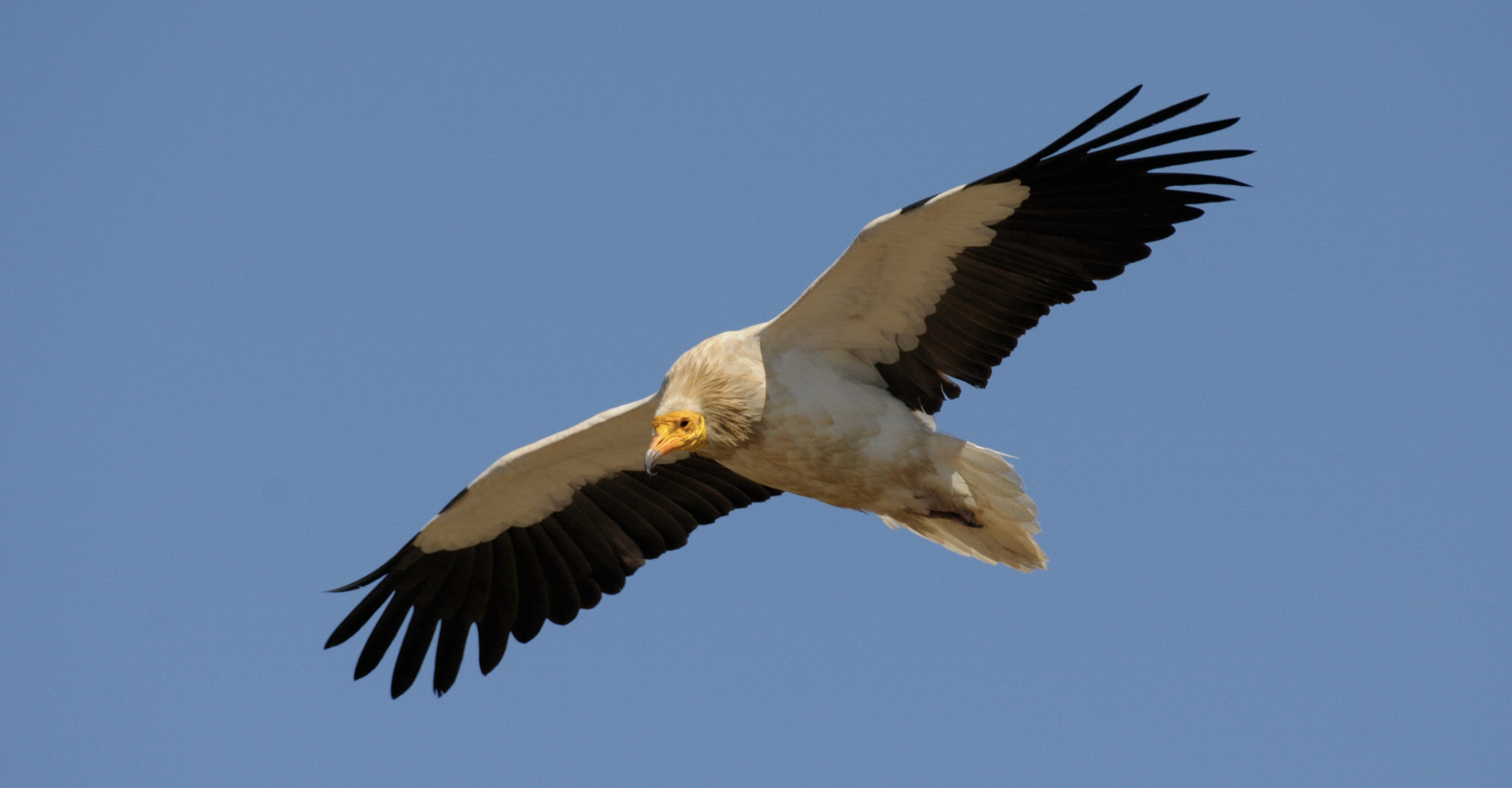…that the Egyptian vulture is the only European species still declining? It is also the only European vulture which is migratory, and the fact that it does a large migration to and from Africa each year may partly explain its conservation plight.
There are around 3000 to 4500 breeding pairs of this species across Europe, from Portugal to the Caucasus, with Spain (1500 pairs) and Turkey (1000-2000 pairs) concentrating the most important populations.
The VCF and its partners are now investing in protecting one of the densest populations of the species in Europe, about 130 pairs living in the transboundary Douro, through the LIFE RUPIS project – you can marvel at the wonders of bird migration by following the 5 tagged birds through our website here (https://www.4vultures.org/our-work/monitoring/egyptian-vulture-online-maps/) – two of them are already on their way to Africa after breeding in the Douro.
Vultures play a very important role in the world´s ecosystem – they are nature’s clean-up crew. They don’t kill, they eat the flesh of other dead animals, thus helping to reduce the spread of disease and eliminating the need for the treatment and incineration of thousands of tons of animal remains every year, saving us millions of euros in waste management and potential emissions of hundreds of thousands of tons of C02 per year.
Unfortunately, they face a range of threats and so populations of many species are under pressure and some species are facing extinction – the VCF is working hard in Europe to minimize those threats and actively work on the ground with several populations to increase them.
More globally, the VCF and its partners have developed a Vulture Multi-Species Action Plan (MsAP), prepared in the framework of the Convention for the Migratory Species, that list the priority actions that need to be taken in order to improve the conservation status of 15 species of old world vultures. The Vulture MsAP will hopefully be approved by all signatory states in the next Conference of the Parties this fall, and will then be a significant tool to address these massive poisoning incidents and therefore revert the decline of several vulture species.
It is important to promote the conservation of vultures to a wider audience and highlight the important work being carried out by the world’s vulture conservationists, and today´s International Vulture Awareness Day is a great opportunity for that. Support the VCF by donating to us, or by spreading the message about our work and activities: see www.4vultures.org/news for info on our projects and vultures more widely.
Photo: Bruno Berthémy/VCF





